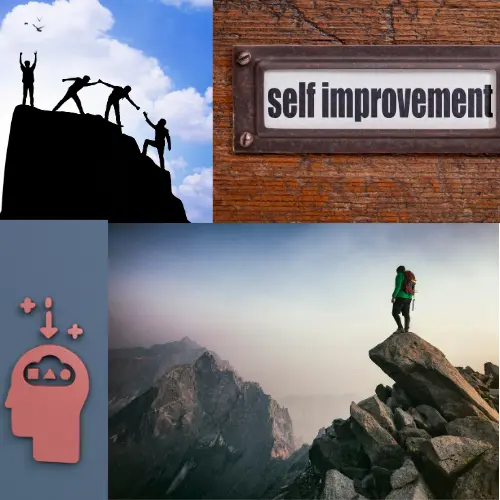Introduction
Self-improvement is a journey that involves constant growth and a commitment to becoming the best version of yourself. In today’s fast-paced world, personal development is more important than ever. It not only enhances your abilities but also boosts your confidence and well-being. In this article, we will explore seven proven strategies for rapid self-improvement success, designed to help you make significant progress in your personal and professional life.
1. The Power of Goal Setting
Goal setting is a fundamental aspect of self-improvement. It gives you a clear direction and purpose. When you set specific, measurable, achievable, relevant, and time-bound (SMART) goals, you create a roadmap for success. This process helps you focus on what truly matters, eliminating distractions and ensuring that your efforts are aligned with your objectives.
Start by identifying your short-term and long-term goals. Write them down and break them into actionable steps. Regularly review and adjust your goals to stay on track. By doing so, you’ll build momentum and achieve significant milestones, leading to continuous self-improvement.

2. Developing a Growth Mindset
A growth mindset is the belief that your abilities and intelligence can be developed through dedication and hard work. This mindset is crucial for self-improvement, as it encourages you to embrace challenges, learn from failures, and persist in the face of obstacles.
To cultivate a growth mindset, focus on the process rather than the outcome. Celebrate your efforts, not just your successes. Surround yourself with positive influences who inspire you to grow, and be open to feedback and learning opportunities. With a growth mindset, you’ll be more resilient and adaptable, which are key traits for personal development.
3. Effective Time Management Techniques
Time management is essential for maximizing your productivity and achieving your self-improvement goals. Poor time management can lead to stress, missed opportunities, and a lack of progress.
One effective technique is the Pomodoro Technique, which involves working in focused intervals of 25 minutes, followed by a short break. This method helps maintain concentration and prevent burnout. Another strategy is prioritizing tasks based on their importance and urgency, often referred to as the Eisenhower Matrix.
By mastering time management, you’ll be able to allocate your time efficiently, ensuring that you dedicate sufficient effort to activities that contribute to your self-improvement journey.
4. The Role of Daily Habits
Your daily habits play a significant role in shaping your future. Positive habits, such as regular exercise, reading, and practicing gratitude, can lead to long-term self-improvement.
Start by identifying habits that align with your self-improvement goals. Focus on one habit at a time, and use techniques like habit stacking—pairing a new habit with an existing one—to make the process easier. Consistency is key; even small, incremental changes can lead to substantial growth over time.
5. Building Resilience and Mental Toughness
Resilience is the ability to bounce back from setbacks and adversity, while mental toughness is the capacity to remain focused and determined in challenging situations. Both are critical for self-improvement, as they enable you to navigate difficulties and continue progressing toward your goals.
To build resilience, practice mindfulness and stress management techniques, such as deep breathing and meditation. Developing a strong support system and maintaining a positive outlook are also essential. Mental toughness can be cultivated through self-discipline, setting high standards for yourself, and pushing through discomfort.

6. Continuous Learning and Skill Development
Lifelong learning is a cornerstone of self-improvement. By continually acquiring new knowledge and skills, you stay competitive and adaptable in a rapidly changing world.
Identify areas where you want to improve or acquire new skills. This could include enrolling in online courses, attending workshops, or reading books on topics that interest you. Make learning a daily habit by dedicating time each day to expanding your knowledge. Continuous learning not only enhances your abilities but also keeps your mind sharp and engaged.
Conclusion
Self-improvement is an ongoing process that requires dedication, persistence, and a willingness to step out of your comfort zone. By implementing the strategies outlined in this article—setting clear goals, developing a growth mindset, managing your time effectively, cultivating positive habits, building resilience, and committing to continuous learning—you can achieve rapid self-improvement success.
Remember, the journey of self-improvement is personal and unique to each individual. Stay committed, be patient with yourself, and celebrate your progress along the way.






